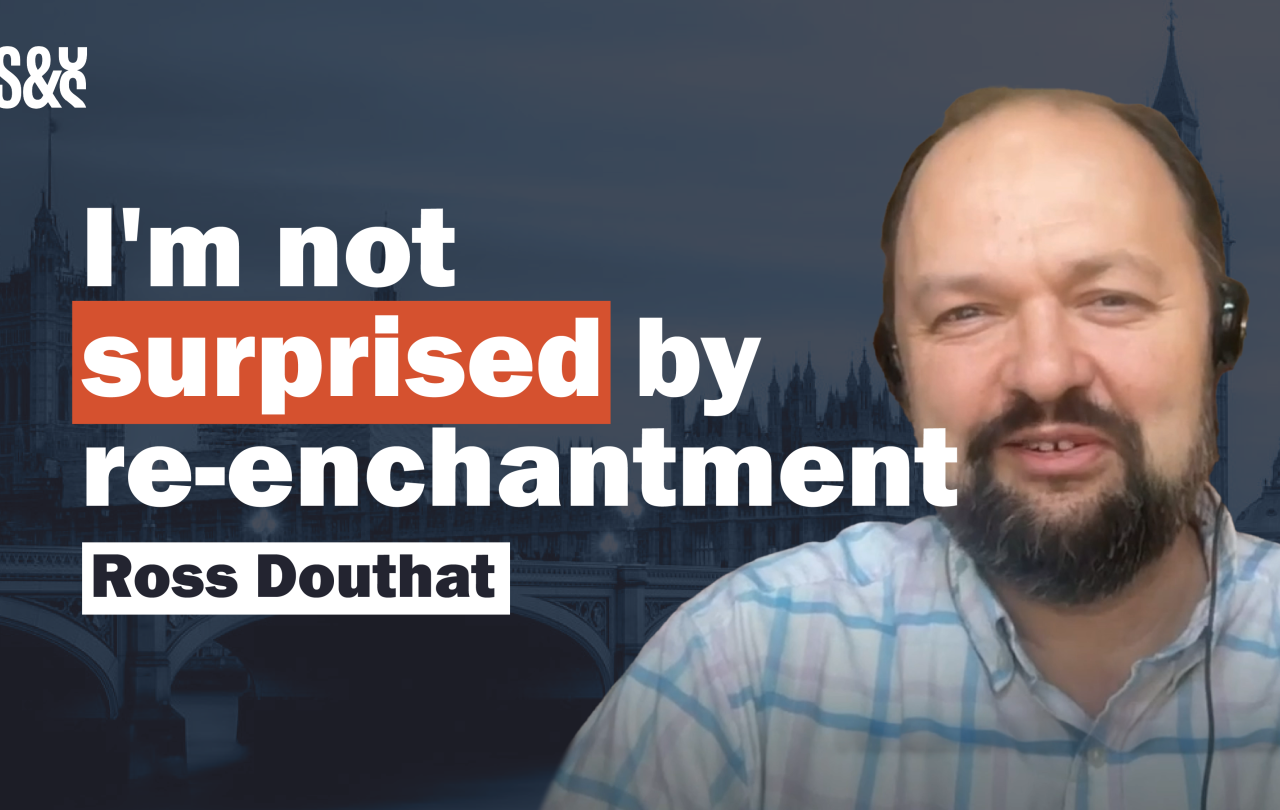
Do you have a favourite piece of graffiti? I used to.
If you're travelling on the M6 around Cheshire, at some point you’ll come to one of those green motorway bridges. And on the side of it, overlooking the tarmac, you'll see in massive writing the word “PIES”.
When I was a kid, I used to be fascinated by this. It raises so many questions. Who wrote the graffiti? How did they do it? Was this person in favour of pies or against them? Was it about all pies or just some pies? What had happened in this person's life to make them have such strong opinions about pastry?
And it was just me. For nearly 30 years, people were left nonplussed about the graffiti as more and more instances of it began to crop up across the North-West of England.
And then, in 2016, the mystery was solved. Apparently, it wasn't really to do with pies at all. It was all the result of a Liverpool band called The Pies trying to promote their music. After getting stuck on the motorway one day, they decided to write the name of their band on the side of the motorway bridge because, well, what else are you going to do when you’re broken down?
It's fair to say, I was a little bit gutted to learn about the origins of the graffiti.
What was once an intriguing mystery that kept me up at night and haunted my every thought (okay, perhaps a slight exaggeration) was revealed to be something so … boring. With hindsight, I wish I'd never learnt the truth about what happened. I thought wanted to know the origins of the pastry-based vandalism but, as they say, ignorance sometimes is bliss.
You see, we sometimes need a little bit of mystery in life.
Peel back the world in Lost or Westworld and you see there’s actually only a thin layer of reality masking a great chasm of nothingness.
This is evident in lots of different ways, but perhaps most apparent when it comes to entertainment and art. TV series Lost, for example, was a huge hit when it first came out. Why did the plane crash? What is the island? What is the smoke monster? Viewers were hooked and demanded answers.
But then answers came and everyone was upset. As Lost went through series after series, and explained more and more about what was happening, the audience slowly became more and more disenchanted with the program. The finale – where the programme’s biggest mysteries were finally revealed – was almost universally panned.
The same to be said of the recent HBO hit Westworld. Its first series was by far and away its best. But season two and three trailed off significantly as there was simply no mystery left in the programme after its spectacular first series. I wonder if this is precisely why the works of the late David Lynch were as compelling as they were? The still-incredible Twin Peaks holds up so well precisely because it categorically refuses to explain itself.
Elsewhere there is a growing tendency in video games, for example, for the narrative of the story to be hidden away, shrouded in mystery and atmosphere. Think of From Software games like Dark Souls and Elden Ring, massively successful in part because they are so mysterious. In both instances, it’s entirely possible to complete the game and have no clue whatsoever that there was even a story in the game, let alone to understand it. The player becomes captured by the mysteries of the worlds they find themselves in, and it’s these mysteries, rather than any answers, than compel them forwards.
The reason why programmes like Lost and Westworld begin to lose their allure as they explain more and more about their world is that this jars with the reality of the world around us. Peel back the world in Lost or Westworld and you see there’s actually only a thin layer of reality masking a great chasm of nothingness.
Peel back the world around us, however, and reality goes all the way down. And this is precisely what we would expect from a world created by a God, who is infinitely Infinite. Reality is not paper thin; goes all the way down. It is mysterious, unfathomable, and resists easy answers.
And so, when we get disappointing explanations about a plane crash in a TV programme, or the origins of our favourite graffiti, it rightly leaves us feeling unsatisfied. Because we are made to be at home in a world that is deeply real. We are made to be at home in a world where the reality has unfathomable, unimaginable depth to it. A world that cannot simply be explained away.
And this is why mystery is so important in our life. In the post-Enlightenment culture in which we find ourselves, a culture that demands every question be answered and every Scooby-Doo villain be unmasked, the notion of boundless mystery might seem somewhat disquieting.
But we are made for mystery. And this is why the best works of art trade more on the mysteries they introduce, rather than the answers that might be behind them. And this is why mystery can be found all around us. Even in a pie.
Join with us - Behind the Seen
Seen & Unseen is free for everyone and is made possible through the generosity of our amazing community of supporters.
If you’re enjoying Seen & Unseen, would you consider making a gift towards our work?
Alongside other benefits (book discounts etc.), you’ll receive an extra fortnightly email from me sharing what I’m reading and my reflections on the ideas that are shaping our times.
Graham Tomlin
Editor-in-Chief





